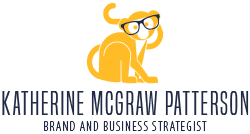I recently held my annual vision board party, one of my most favorite events of the year. Vision boards hold real power, I always tell my guests, because they give us a picture of what we could be and what we could achieve, and help us to align our actions in order to become or achieve that state of being.
Listen, I am a linear, logical thinker. I like to joke that there are many coaches and healers in my life and they have LOTS OF FEELINGS. Me? Not so much. I’m a doer. Achiever and maximizer are two of my top strengths. I’m all about action, not feeling. In fact, none of my top five strengths lie in the relationship domain…so while my peers and colleagues have many feelings, I joke that I’m lucky to have one, and it’s usually the feeling that I should be doing something.
So, it might seem strange that I put so much faith in vision boards, which are a little woo-woo. The fact is, I believe so strongly in visualization, that it’s the foundation of all the work I do with my clients in creating their strategies and systems. The first question I ask is “What is your unique vision of success?”
How do I reconcile the touchy-feely intangible of vision with an action-oriented approach towards business success?
Psycho cybernetics.
“What the heck is psycho cybernetics?” I can hear you asking. In a nutshell, it’s the science behind the mind-body connection that allows us to achieve our goals. I was first introduced to the theory in the book “Psycho-Cybernetics”by Maxwell Maltz, originally written in 1960.
The best way to describe how psycho cybernetics relates to visualization is through an experiment that Maltz describes in his book. The story goes like this:
A group of basketball players is asked to shoot free throws,and each player’s accuracy is recorded. They are then separated into three groups. The first group practices free throws every day. The second group doesn’t practice shooting at all. The players in the third group sit on the bench each day and imagine themselves successfully shooting free throw after free throw. At the end of the experiment, all the players again line up for free throws. Those players on the team that practiced free throws every day showed the most improvement, while the team that never practiced didn’t improve at all. BUT, the third team, who never touched a ball and only visualized themselves making free throws improved by nearly as much as the team who practiced every day.
Many of us take for granted that when you visualize yourself succeeding, your performance will improve. Imagery (like those pictures on a vision board) are a key player in that improvement, as imagery is a process by which sensory information is represented in working memory. However, imagery that goes beyond the visual to include multi-sensory information produces physiological effects similar to those you would feel if you were undergoing an actual experience.
In other words, when you sit on the bench and imagine yourself stepping up the free throw line; imagine the feel of the ball in your hand; imagine your heart racing and the adrenaline pumping; imagine the feel of your feet on the boards; and imagine the sound of the ball as it bounces and the cheering of the crowd, the image is anchored into your working memory as if it had actually taken place. Your body and mind experience that imagined free throw as if it were real, and your skills increase accordingly.
In business, visualizing success might look like imagining yourself standing on a stage speaking to an audience of industry peers, or picturing your dream office, or dreaming of an important client or project. Ask yourself how you would feel in that moment. What thoughts would run through your head? How would you body react?
One of the questions I ask my clients when we’re mapping out their vision is “What are you wearing?” It always gets a giggle, but this is the kind of granular image that really helps anchor you to what you want to achieve. What are you wearing on that stage? What are you wearing in your dream office? The best vision boards use imagery that is super-specific to what you want to be, feel, achieve, and have in your life.
I’ll ask you now – what is your unique vision of success? If you were to wake up one year, three years, or five years from now, what would your life look like? How would you know you had succeeded? How would you feel? Where would you be? What would you be doing? Dive into your vision by picturing down to minute detail who that future you is, what they have, and what they’ve achieved.
Want to explore your vision? Download my free Vision Worksheets to uncover yours today!

